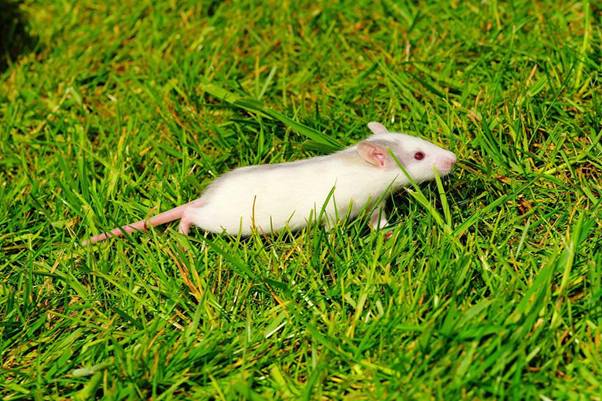There are a number of things that can go wrong in your garden, preventing it from reaching its full blooming potential. Here are four of the most common problems and their solutions.
Pests
If you’re having trouble getting your garden to bloom, it might be because of pests. Garden rats are a common problem for gardeners, and they can quickly ruin your plants.
Garden rats are attracted to gardens because of the food. They’ll eat just about anything, including fruits, vegetables, and nuts. They also like to eat flowers, which can ruin your garden’s aesthetic. To keep garden rats away, you’ll need to take some preventative measures. First, make sure you don’t have any food lying around that would attract them. This includes fallen fruit, nuts, and even spilled bird seed.
You should also trim back any overgrown plants or weeds that might provide cover for garden rats. If you have a compost pile, make sure it’s properly sealed so rats can’t get in.
Finally, you can try using rat traps to catch them. Place the traps near areas where you’ve seen garden rats, and check them regularly. Once you’ve caught a few rats, they’ll likely stay away from your garden for good!
Lack of Sunlight
If your garden isn’t blooming, it might be due to a lack of sunlight. Plants need sunlight to grow, so if your garden isn’t getting enough sun, it won’t bloom.
There are a few things you can do to increase the amount of sunlight your garden gets:
– Move your garden to a sunnier spot
– Trim trees and shrubs that are shading your garden
– Use reflective materials to increase the amount of light that reaches your garden
If you take these steps, your garden should start to bloom in no time!
Poor Soil Quality
If your garden isn’t blooming, it might be due to poor soil quality. The first step is to test your soil to see what nutrients it’s lacking. You can do this at home with a soil test kit or by sending a sample of your soil to a laboratory.
Once you know what nutrients your soil is lacking, you can amend it with the appropriate fertilizers. For example, if your soil is lacking in nitrogen, you can add a nitrogen-rich fertilizer. If you’re not sure how to amend your soil, consult a gardening expert.
It’s also important to make sure your garden is getting enough sunlight. If your plants are not getting at least six hours of sun per day, they won’t bloom as well. Finally, make sure you’re watering your plants regularly. Blooming plants need lots of water, especially during hot summer days.
Plant Diseases
If your garden is not blooming as much as you would like, there are a few things that might be to blame. Sometimes, it is a simple case of too much shade. Other times, the soil might be too compacted. But sometimes, the problem might be more serious, such as plant diseases.
Four main types of plant diseases can affect your garden: fungal, bacterial, viral, and parasitic. Each type of disease is caused by different organisms and can cause different symptoms:
- Fungal diseases are some of the most common diseases that affect plants. They are caused by fungi, which are tiny organisms that often appear as molds or mildews. Some of the common symptoms of fungal diseases include spots on leaves, flowers, or vegetables that turn yellow, white, brown, or black; leaf blotches; blisters; and fuzzy growths.
- Bacterial diseases are also common in gardens. They are caused by bacteria, which are single-celled organisms. Bacteria can cause a wide variety of problems in plants, including soft rot (which can make fruits and vegetables mushy), bacterial wilt (which clogs up the plant’s vascular system so it cannot get water), and leaf spot (which creates small lesions on leaves).
- Viral diseases are less common in gardens, but they can be devastating to plants. Viruses are very small infectious agents that can only reproduce inside the cells of other organisms. They cause a wide range of symptoms, including stunted growth, mottled leaves, and deformities. Some viral diseases can be transmitted to people, so it is important to be aware of them.
- Parasitic diseases are caused by parasitic organisms such as nematodes, mites, and insects. These parasites live on or inside plants and feed off of them. This can cause a wide variety of problems for the plant, including stunted growth, yellowing leaves, and dwarfed flowers.
This article looked at four things that can keep your garden from blooming. By understanding these problems, you can take steps to correct them and enjoy a thriving garden.




